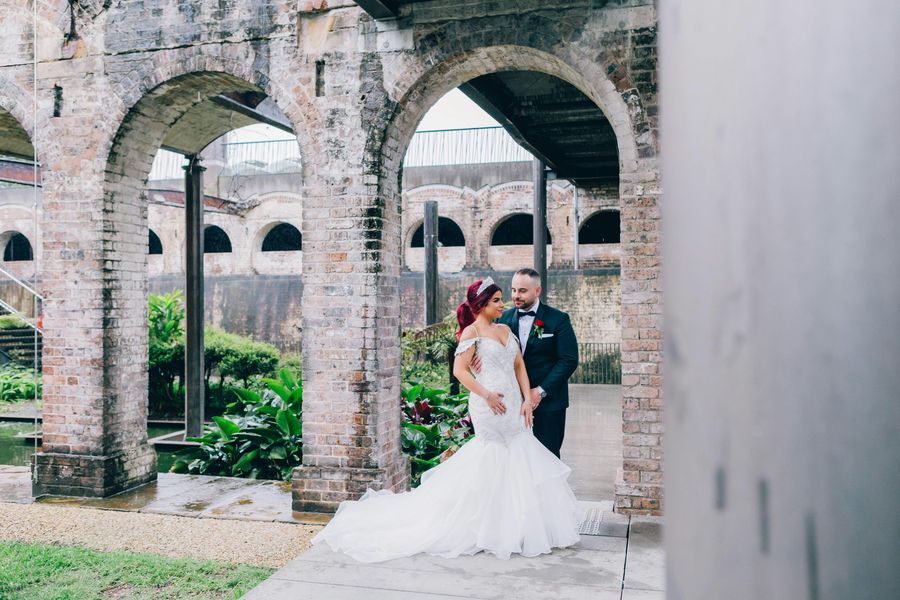Intercultural Marriage: Navigating Different Customs and Cultures
Are you considering marrying someone from a vastly different cultural background than your own? Congratulations! Love knows no boundaries, and we believe that marrying someone from a different culture can bring a unique richness and depth to your relationship.
However, whether you are a Punjabi marrying a Tamilian or an American marrying a Japanese, navigating the cultural differences in a wedding can be challenging. In this article, we’ll explore some of the unique aspects of intercultural weddings, the contrasts in cross-cultural marriage, and the beauty of celebrating two different cultures coming together as one.
Cultural Differences in Wedding Preparations
One of the first hurdles in an intercultural marriage is the wedding preparations. Customs and traditions can vary widely between cultures and families, which could lead to disagreements and tussles.
For example, if you are marrying into a Punjabi family, you might encounter a sangeet event with vibrant colors, choreographed dancing, and lots of music. In contrast, a Tamilian wedding might feature Kanjeevaram silks, intricate gold jewelry, and a more formal atmosphere.
The key is to understand and appreciate each other’s customs while finding a way to blend them seamlessly. You could explore new customs, invite family members to share their unique cultural traditions, and learn about each other’s traditions. This could be a beautiful way to showcase both cultures in your wedding ceremony.
Unique Aspects of Inter-Cultural Weddings
One of the most remarkable parts of intercultural weddings is the union of two different cultures, which can create unique and unforgettable experiences. You could incorporate wedding customs, cuisines, dressing styles, and cultural music, showcasing the beauty of two cultures coming together.
For example, you could combine the Punjabi sangeet with Tamilian garment styles. The fusion could be a new experience for both families involved in the wedding, creating an unforgettable impression.
While it might be tempting to shy away from certain customs or traditions that feel unfamiliar, it’s vital to approach intercultural weddings with a mindset of openness and curiosity. The beauty of celebrating different cultures is in learning new things and enjoying the richness that comes with embracing diversity.
Contrasts in Cross-Cultural Marriage
Marriage is a journey that requires love, patience, and hard work, and when marrying someone from a vastly different cultural background, there could be challenges. For example, language, food, and dressing styles are not only a convenient part of life, but they also play a vital role in shaping one’s identity.
It’s essential to approach these differences with sensitivity and understanding. Take language, for example. Learning your partner’s language or finding a common language can be a fun and enriching experience. Additionally, food can be a source of pleasure and joy, and introducing each other to new cuisines could be a fun exploration.
Finally, even though dressing styles could be vastly different, the key is to showcase your individuality and respect each other’s clothing traditions.
Beauty of an Intercultural Marriage
It’s essential to remember that an intercultural marriage is a celebration of love, diversity, and the union of two cultures. When you love fiercely, the differences in culture can bring you closer.
Each culture has traditions, customs, and ideologies that can help shape your marriage and deepen your understanding and appreciation of each other. However, it’s not always easy, and sometimes challenges arise. That’s where a multicultural marriage counselor can come in handy. A counselor can help you navigate cultural differences, communicate effectively, and work through challenges as a team.
In conclusion, an intercultural marriage can be a beautiful, unique, and enriching experience that deepens your love and understanding of each other’s differences. Embrace the challenges with a curious and open mindset, celebrate your cultures, and lean on resources like multicultural marriage counseling to help you navigate any hurdles that arise.
Congratulations on embarking on this remarkable journey!
Wedding Preparations: Cultural Differences Highlighted
Preparing a wedding can be challenging enough, but an intercultural wedding can present its own unique challenges. With vastly different customs, traditions, and expectations, it can be challenging to navigate the cultural differences between couples and their families.
One key piece of advice is communication. Open, honest, and respectful communication can help bridge any cultural gaps and ensure that both partners and families feel heard and respected throughout the planning process. This can help avoid any disagreements, tussles, or misunderstandings.
Unique Aspects of Inter-Cultural Weddings
One of the exciting things about intercultural weddings is the chance to showcase the unique and beautiful elements of each culture involved. By recognizing and highlighting the customs, beliefs, and traditions that have been passed down through generations, couples can create a breathtaking and meaningful wedding experience.
Wedding customs are an essential part of intercultural weddings. For example, in Punjabi weddings, the Sangeet event features vibrant colors, music, and choreographed dancing, while Tamilian weddings feature stunning Kanjeevaram silk sarees and intricate gold jewelry.
A fusion of both cultures might include combining the energetic music and vibrant choreography of a Punjabi sangeet with the elegant and traditional attire of Tamilian weddings.
Contrasts in Cross-Cultural Marriage
Parenting is a critical aspect of building a family, and couples from different cultures may bring different approaches to parenting. For example, a parent from a collectivist culture may prioritize the needs of the family above individual wants while individualistic cultures may value self-expression and personal desires.
In an intercultural marriage, these differences can be challenging, and it’s essential to have open communication and compromise to work through. It can be disconcerting when cultural differences arise, and those differences can be magnified when it comes to parenting.
One approach is to adopt a growth mindset in which the goal is to learn and grow together. This means that both partners are open to learning new things, experiencing new perspectives, and trying new approaches to resolve any differences and move forward together.
Overcoming Differences through Effective Communication
When it comes to overcoming the challenges that arise in an intercultural marriage, a key approach is effective communication. Communication means understanding each other’s cultural customs, beliefs, and values, and being willing to compromise, be patient, and explain things to each other.
Things like parenting styles, religious beliefs, and even cooking and eating styles can be sources of conflict, but effective communication can help moves the conversation forward. The use of multicultural marriage counseling can be beneficial for couples who encounter obstacles in their marriage.
Counselors can help identify roadblocks in communication, work with couples to develop strategies to overcome the differences, and build a stronger bond between couples. Ultimately, an intercultural marriage requires a willingness to work through challenges together, love fiercely, and embrace differences as a beautiful and enriching aspect of their lives.
Intercultural marriages can be a beautiful and enriching experience, but they also come with their own unique set of challenges. In this article, we have explored the various aspects of intercultural weddings, cross-cultural differences, and the importance of communication and compromise in managing cultural disparities.
By learning from one another, embracing each other’s customs, and working through challenges through effective communication, intercultural marriages can lead to deep understandings and appreciation of each other’s differences. In the end, the importance of mutual respect and understanding cannot be overstated in creating a beautiful and successful intercultural marriage.



